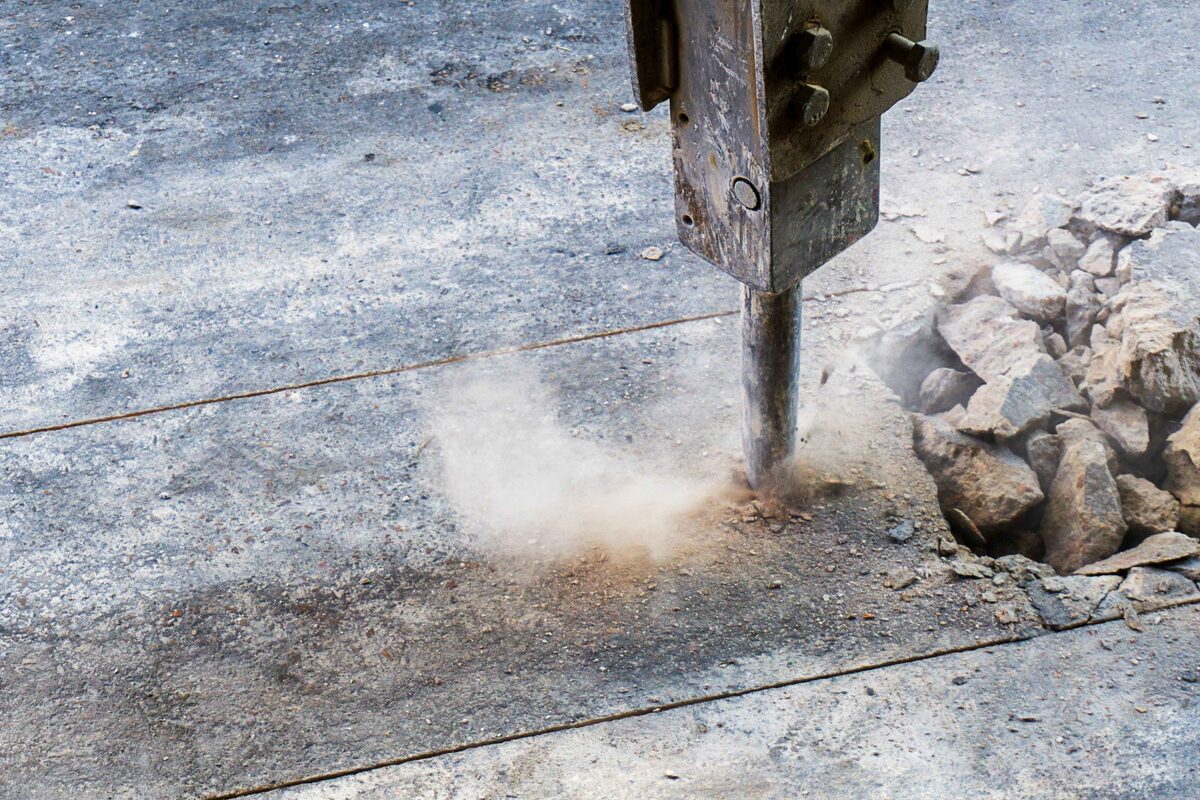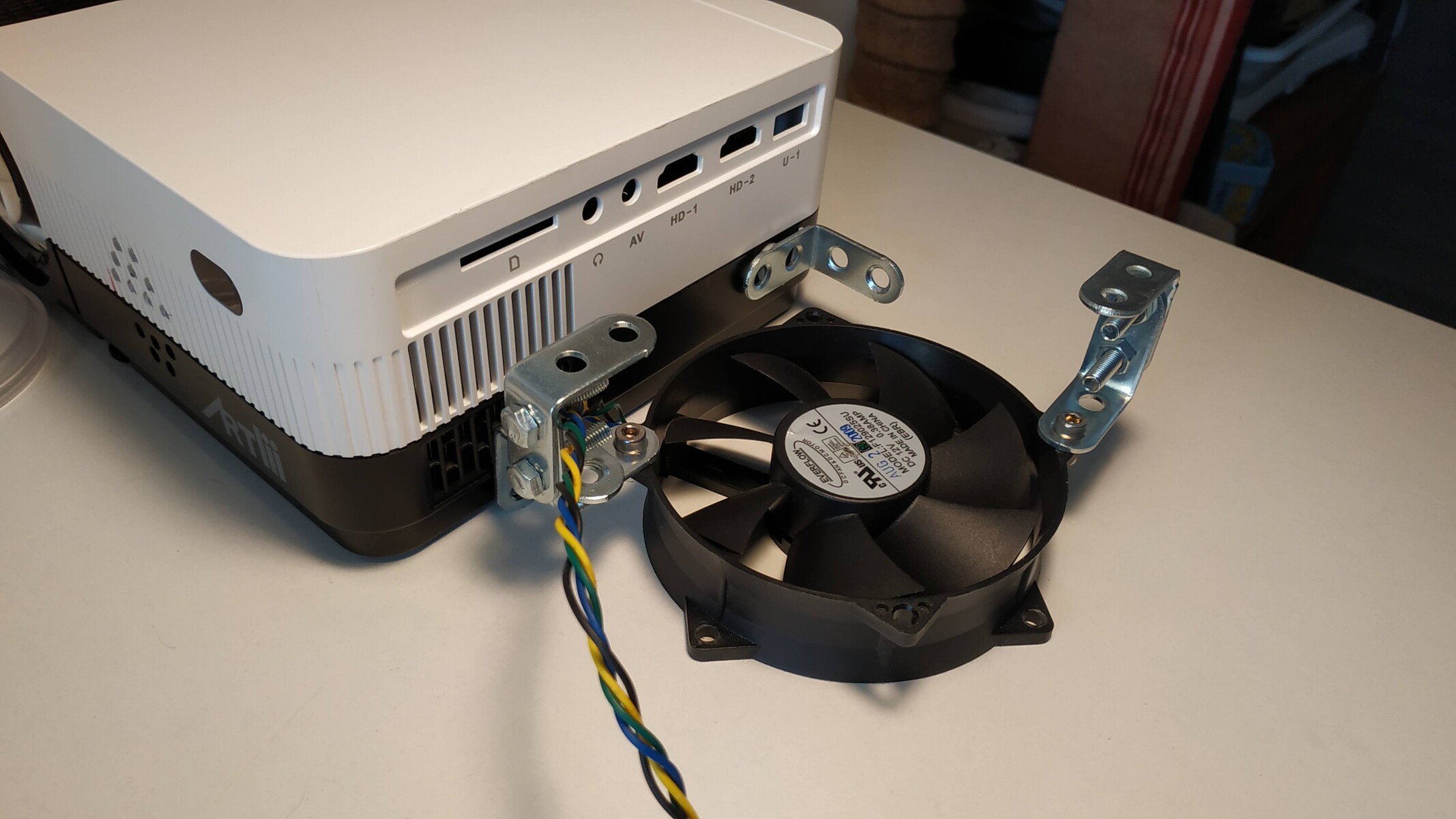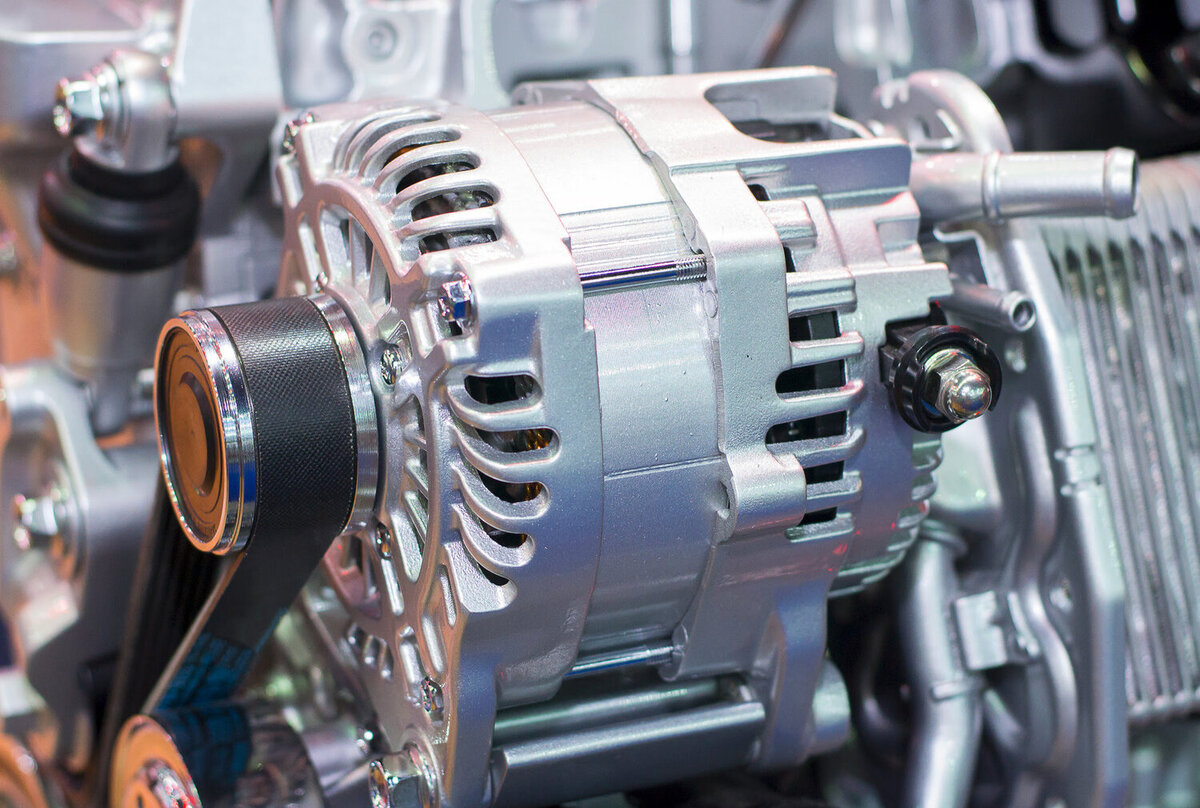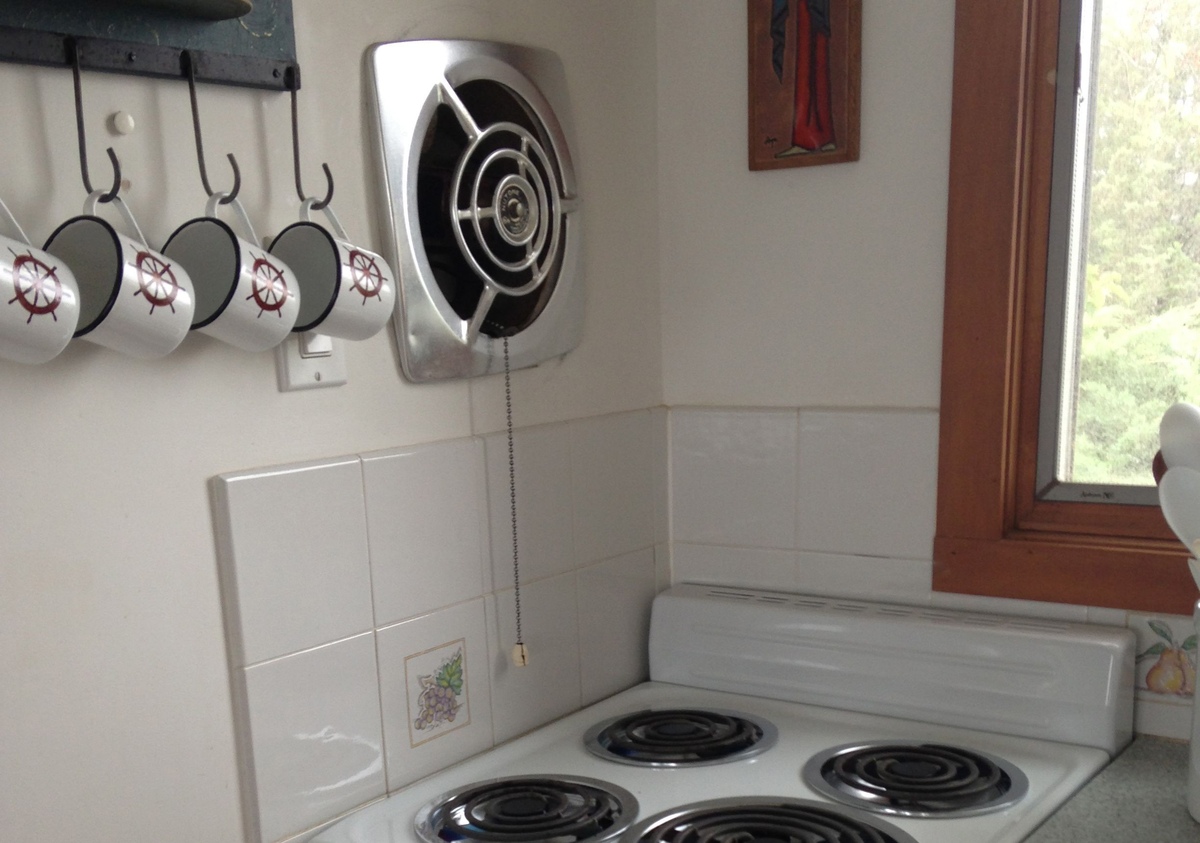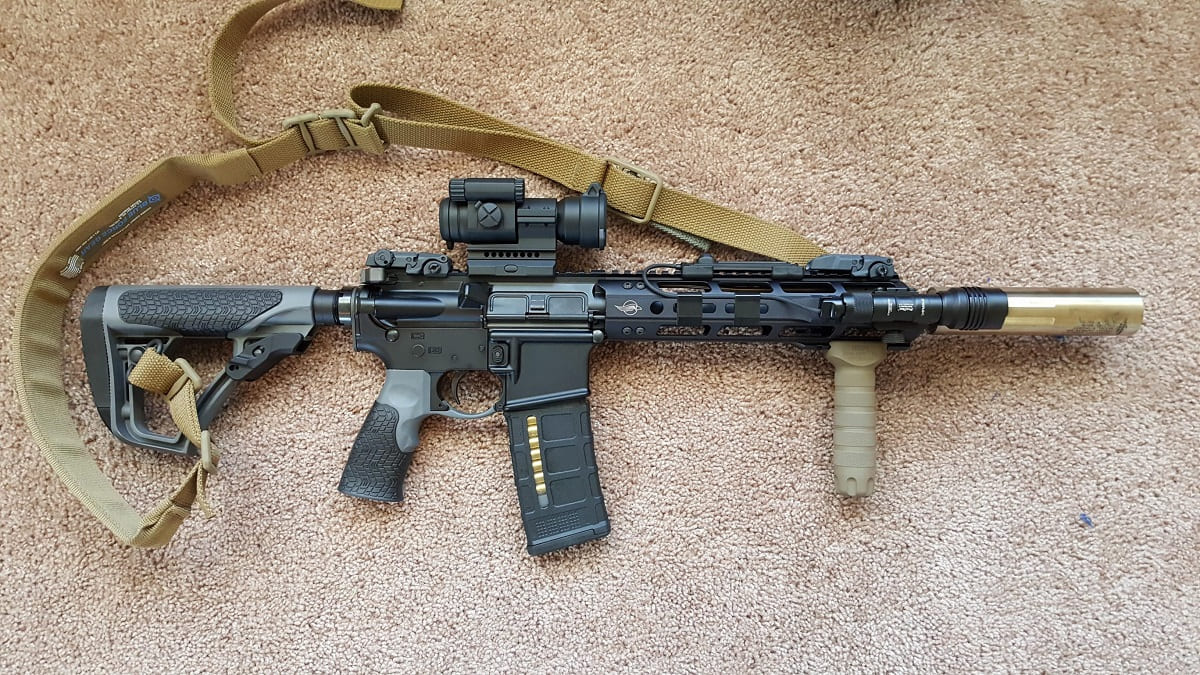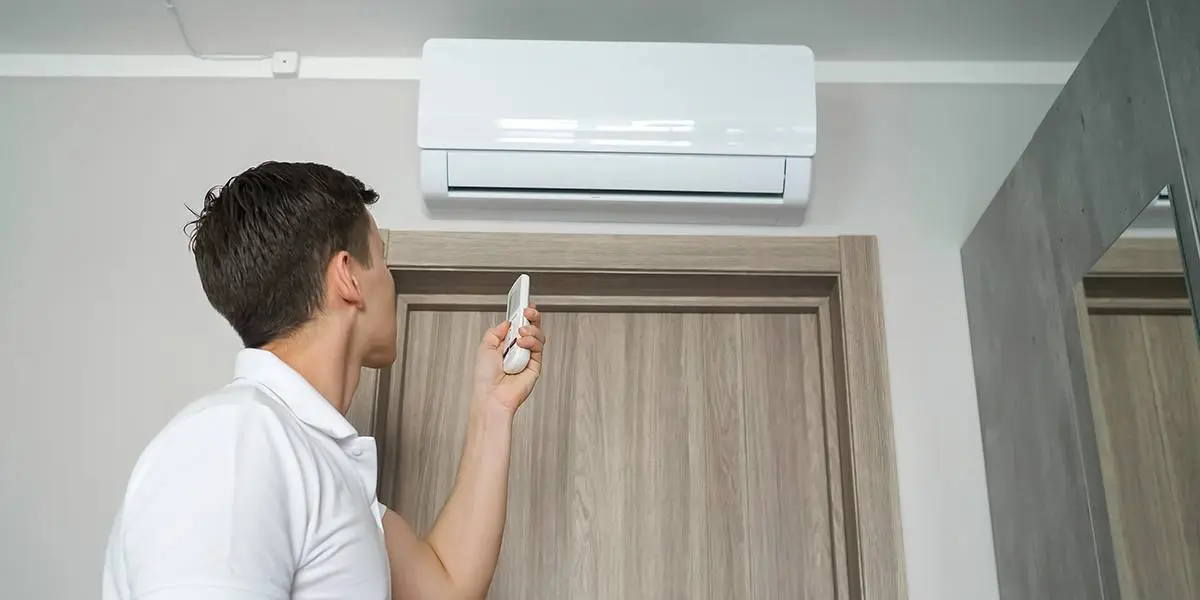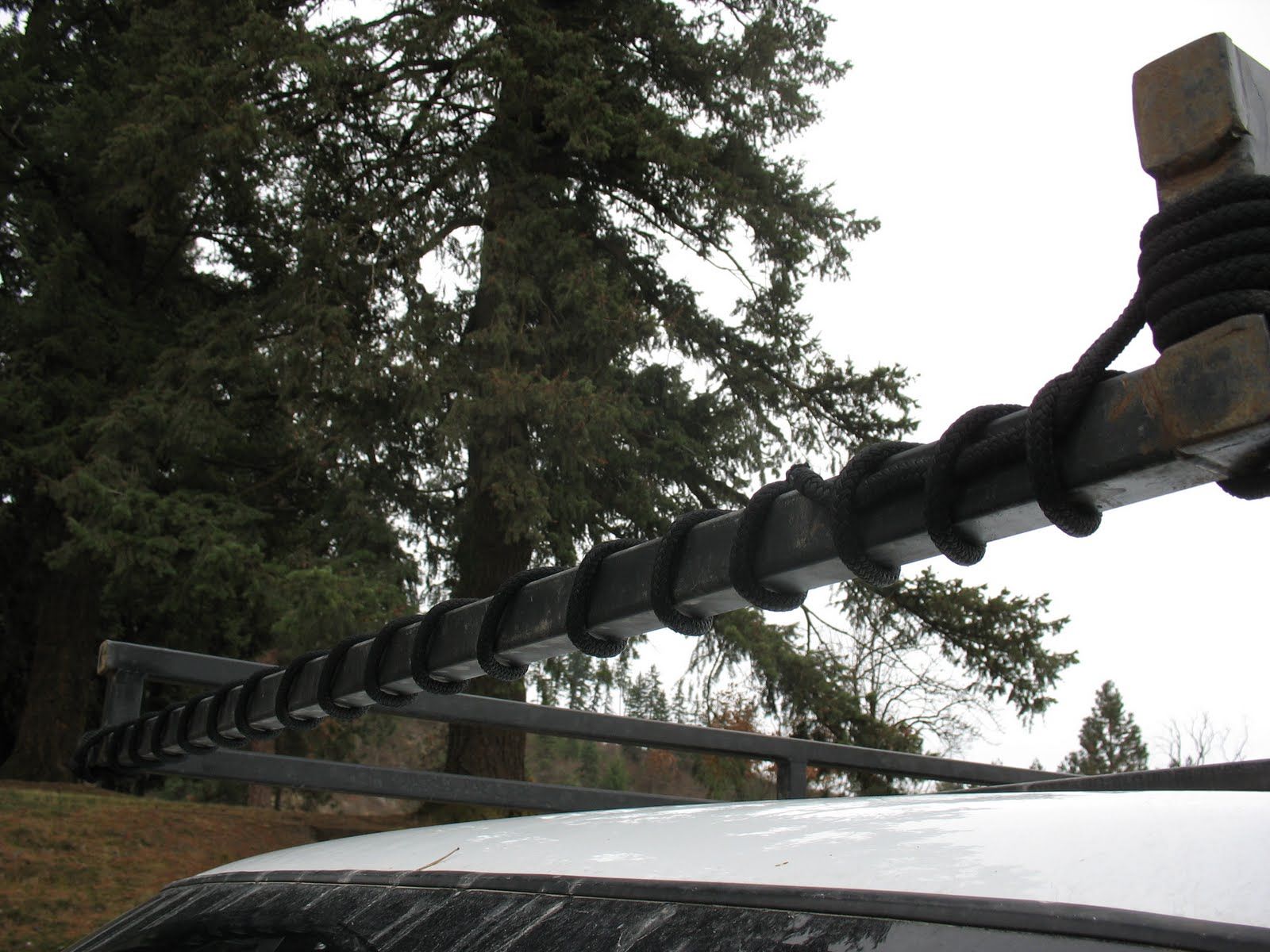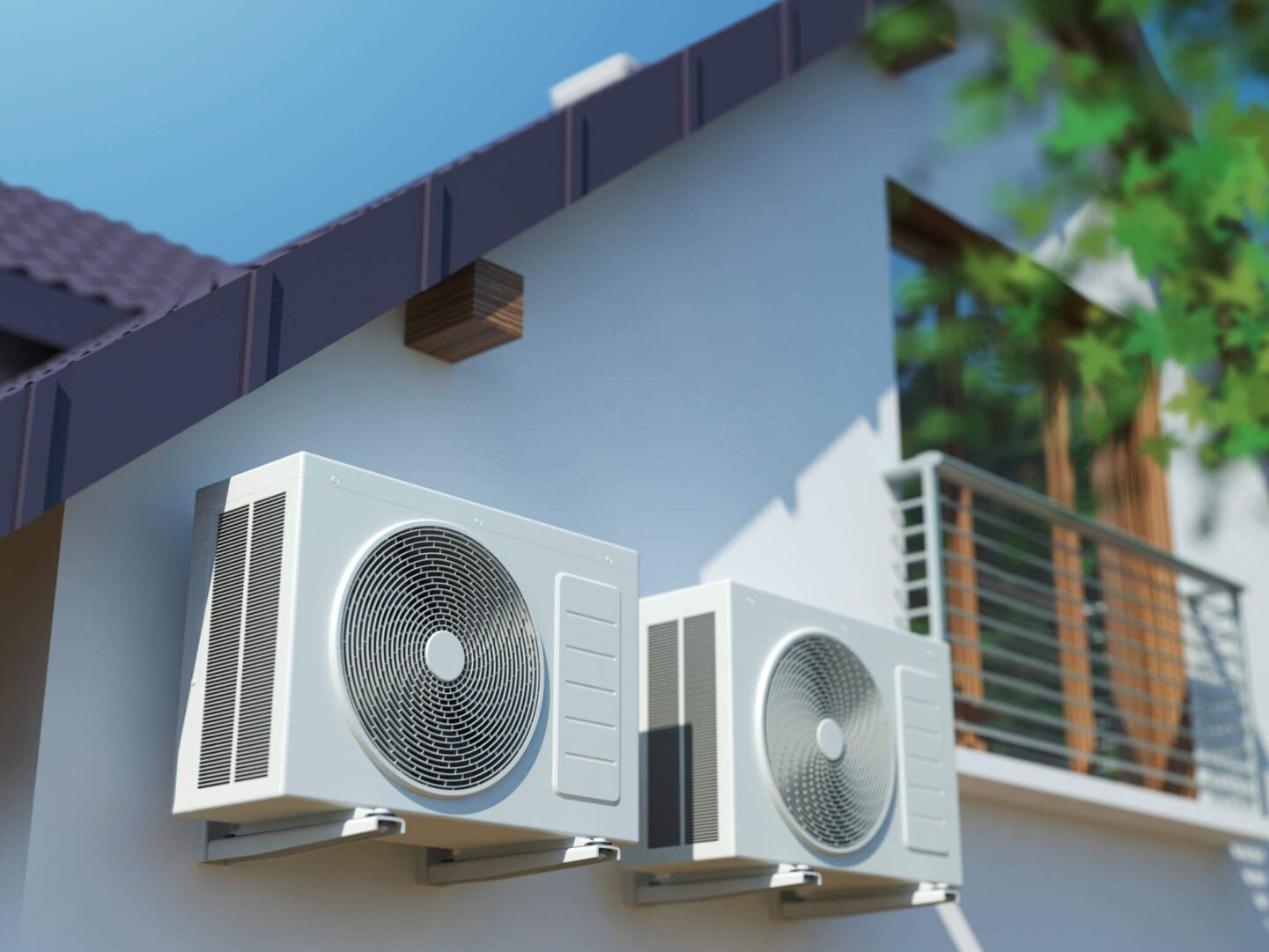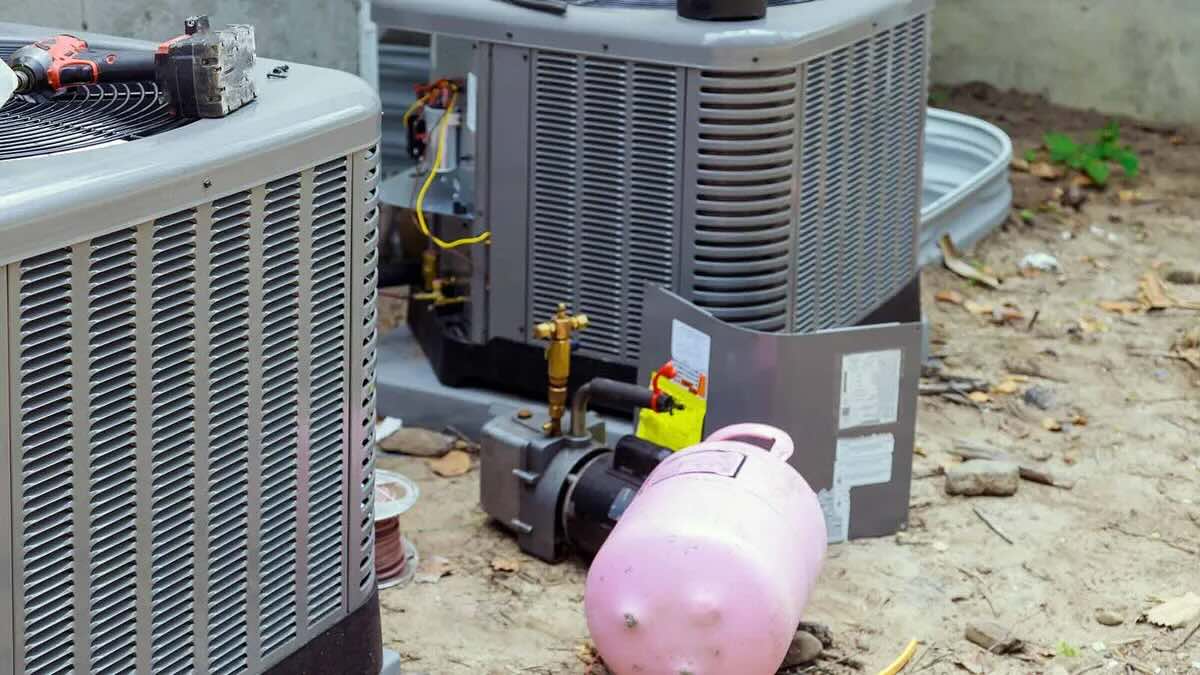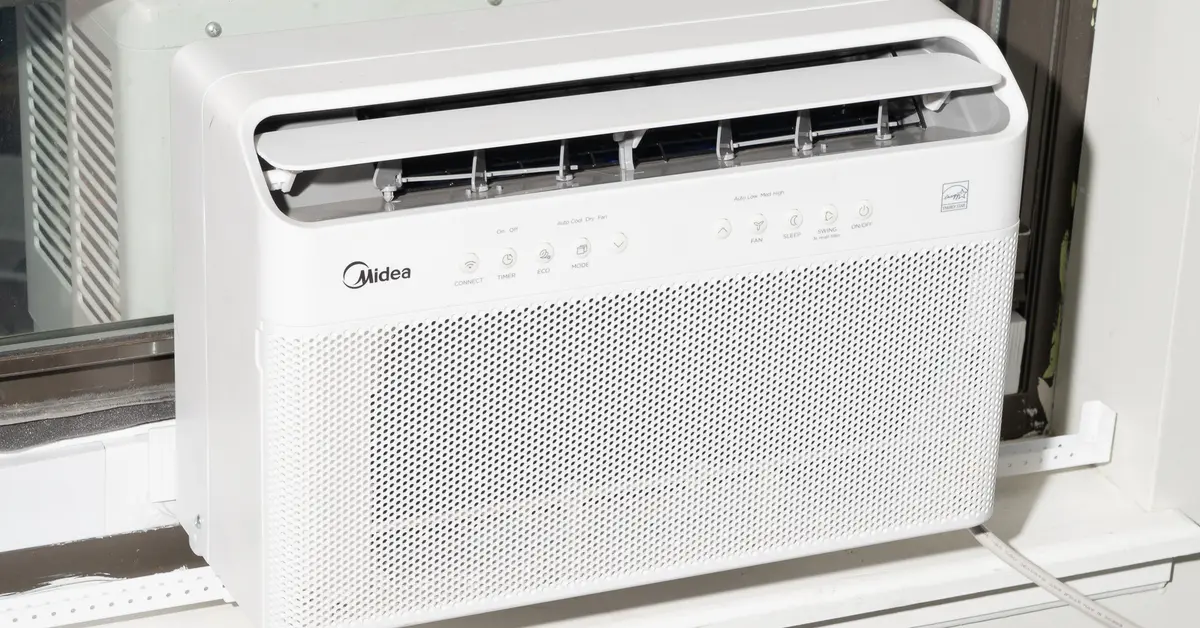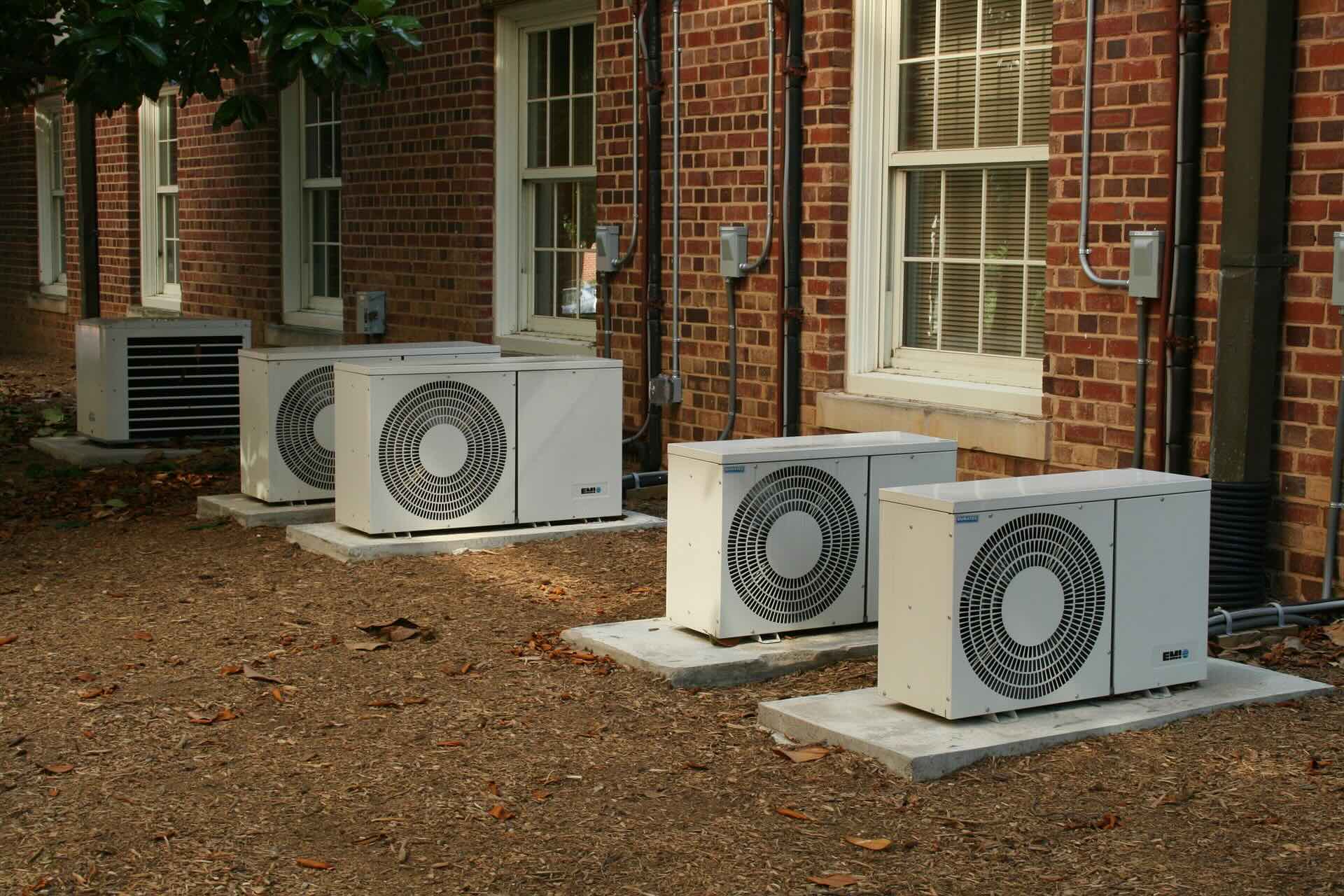Home>Home Maintenance>How To Reduce Noise From An Air Conditioner


Home Maintenance
How To Reduce Noise From An Air Conditioner
Modified: March 7, 2024
Learn effective home maintenance tips to reduce noise from your air conditioner and enjoy a peaceful environment. Discover how to minimize disturbances caused by your AC unit.
(Many of the links in this article redirect to a specific reviewed product. Your purchase of these products through affiliate links helps to generate commission for Storables.com, at no extra cost. Learn more)
Introduction
Welcome to our comprehensive guide on how to reduce noise from an air conditioner. We understand that a noisy air conditioner can be quite bothersome, especially when trying to relax or concentrate at home. The good news is that there are several effective methods you can employ to minimize this noise and create a more peaceful environment. In this article, we will walk you through the different types of noise that air conditioners can produce, the common causes behind them, and various practical tips and techniques to reduce and even eliminate the noise. Whether you have a window unit or a central air conditioning system, these tips can be tailored to suit your specific needs. So, let’s dive in and discover how to achieve a quieter and more comfortable living space.
Key Takeaways:
- Reduce air conditioner noise by proper placement, regular maintenance, and soundproofing methods. Enjoy a peaceful and comfortable living space by taking targeted actions to address specific noise issues.
- Explore noise-canceling devices and white noise machines for advanced noise reduction. Choose the right method or combination based on your preferences and consult professionals for optimal results.
Read more: How To Reduce Noise From Wooden Stairs
Understanding the Different Types of Noise from Air Conditioners
Air conditioners can emit various types of noise, and understanding these different sounds can help you identify the source and potential solutions to reduce them. Here are the most common types of noise produced by air conditioners:
- Rattling or Vibrating Noise: This type of noise is often caused by loose components or debris within the air conditioner. It can be quite annoying and may indicate that certain parts need to be tightened or replaced.
- Clicking or Banging Noise: If you hear a clicking or banging noise when your air conditioner turns on or off, it could be due to a problem with the electrical components or a malfunctioning compressor. It’s important to address this issue promptly to prevent further damage.
- Whistling or Hissing Noise: Whistling or hissing sounds can indicate issues with airflow, such as a clogged air filter, blocked ducts, or leaks in the system. Cleaning or replacing the air filter, removing any obstructions in the ducts, and sealing any leaks can help eliminate these noises.
- Buzzing or Humming Noise: Buzzing or humming noises are often related to electrical problems, such as a faulty fan motor or loose wiring. These noises can be not only annoying but also potentially dangerous, so it’s crucial to have an electrician inspect and repair the issue.
- Squealing or Screeching Noise: A squealing or screeching noise usually indicates a malfunctioning fan belt or motor bearing. Ignoring these sounds can lead to further damage and affect the overall efficiency of your air conditioner.
Now that you have a better understanding of the different types of noise that air conditioners can produce, let’s move on to identifying the common causes behind them and how we can address these issues to minimize the noise.
Identifying the Common Causes of Air Conditioner Noise
When it comes to air conditioner noise, it’s important to pinpoint the root causes in order to effectively reduce or eliminate the noise. Here are some common culprits behind air conditioner noise:
- Loose or Misaligned Parts: Loose or misaligned parts within the air conditioner can lead to rattling, banging, or vibrating noises. Common examples include loose mounting brackets or panels, improperly secured fan blades, or misaligned blower assemblies.
- Debris or Obstructions: The presence of debris, such as leaves, twigs, or dust, in the air conditioner’s outdoor unit or within the ductwork can cause airflow disruptions and result in whistling or hissing sounds. Regular cleaning and maintenance can help prevent this issue.
- Worn Out or Damaged Components: Over time, certain components of the air conditioner may wear out or become damaged, resulting in noise. This can include worn motor bearings, damaged fan belts, or faulty compressor valves. Replacing these components can help alleviate the noise problem.
- Lack of Lubrication: Insufficient lubrication can cause friction and squealing or screeching noises. Lubricating the necessary components according to the manufacturer’s instructions can reduce these noises and promote smoother operation.
- Poor Installation: An air conditioner that has been installed improperly or with subpar materials can lead to excessive noise. It’s important to have your air conditioner installed by a qualified professional to ensure that it is properly aligned, securely mounted, and adequately insulated.
By identifying the specific cause or causes of the noise, you can take the necessary steps to address the issues and minimize the noise produced by your air conditioner. In the following sections, we will explore different methods to reduce and eliminate air conditioner noise, ranging from proper placement and maintenance to soundproofing techniques and noise-canceling devices.
Proper Placement and Installation of the Air Conditioner
The placement and installation of your air conditioner play a crucial role in its noise levels. By following proper guidelines, you can minimize the noise produced by the unit. Here are some tips for proper placement and installation:
- Choose a suitable location: Select a location for your air conditioner where it will have minimal impact on noise levels indoors. Avoid placing it in bedrooms or areas where you spend a lot of time. Outdoor spaces like the backyard or side of the house are preferable.
- Consider the distance from windows and doors: Install the air conditioner away from windows and doors to prevent noise from entering your home. Placing the unit on the opposite side of the house from commonly used areas can also help minimize noise disruption.
- Avoid obstructions: Ensure that there are no obstructions around the unit that could impede airflow. Trim any overhanging branches, remove debris, and keep the area around the unit clear to allow for proper ventilation and reduce noise.
- Use vibration isolation pads: Air conditioners can generate vibrations that contribute to noise. Using vibration isolation pads under the unit can help absorb and minimize these vibrations, reducing overall noise levels.
- Insulate the unit: Properly insulating the air conditioner can help reduce noise transmission. Use foam or rubber insulation around the pipes and ducts to prevent sound from traveling into your home.
- Hire a professional installer: To ensure proper installation and minimize potential noise issues, consider hiring a professional air conditioner installer. They have the knowledge and experience to handle the placement and installation correctly.
By implementing these placement and installation tips, you can significantly reduce the noise generated by your air conditioner. Keep in mind that proper maintenance and regular cleaning also play a crucial role in noise reduction. In the next section, we will delve into the importance of regular maintenance and cleaning to keep your air conditioner running smoothly and quietly.
Consider installing soundproofing materials around the air conditioner, such as acoustic panels or foam insulation, to reduce noise. Regular maintenance and cleaning of the unit can also help minimize noise.
Regular Maintenance and Cleaning of the Air Conditioner
Maintaining and cleaning your air conditioner is essential not only for its proper functioning but also for reducing noise levels. Regular maintenance helps prevent the accumulation of debris and ensures all components are in good working condition. Here are important maintenance and cleaning tasks to perform:
- Change or clean the air filter: A clogged or dirty air filter can restrict airflow and increase noise levels. Check the manufacturer’s guidelines to determine how often the filter should be changed or cleaned. In general, it is recommended to clean or replace the filter every few months.
- Clean the condenser coils: Over time, the condenser coils can accumulate dirt and debris, reducing their efficiency and causing increased noise levels. Regularly clean the coils using a soft brush or a vacuum cleaner with a brush attachment.
- Inspect and tighten loose components: Regularly check for any loose components, such as screws, bolts, or fan blades. Use the appropriate tools to tighten any loose parts to prevent rattling or vibration noises.
- Check for refrigerant leaks: Low refrigerant levels can cause the air conditioner to work harder and produce more noise. Inspect the unit for any signs of refrigerant leaks, such as oil stains or hissing sounds. If a leak is detected, contact a professional technician to fix the issue.
- Clear debris from the outdoor unit: Remove any leaves, dirt, or debris that may have accumulated around the outdoor unit. Use a soft brush or a low-pressure hose to gently clean the unit and ensure unrestricted airflow.
- Inspect and clean the vents and ducts: Clogged or dirty vents and ducts can restrict airflow and contribute to noise problems. Regularly inspect and clean these areas to ensure optimal airflow and reduce noise levels.
By following these maintenance and cleaning tasks on a regular basis, you can keep your air conditioner running efficiently and quietly. However, if the noise issue persists even after performing these tasks, it may be necessary to explore additional soundproofing methods, which we will discuss in the next section.
Read more: How To Reduce HVAC Noise
Soundproofing Methods for Reducing Air Conditioner Noise
If you have tried the previous methods and still find that your air conditioner is producing excessive noise, you can consider implementing soundproofing techniques to further reduce the noise. Soundproofing helps to minimize sound transmission and create a quieter environment. Here are some effective soundproofing methods:
- Insulate the walls: Adding insulation to the walls surrounding the air conditioner can help absorb and block noise. Insulation material such as acoustic foam or fiberglass can be installed within the walls to reduce sound transmission.
- Install soundproof curtains or blinds: Heavy, sound-absorbing curtains or blinds can help block incoming noise from the outside and absorb sound waves generated by the air conditioner. These can be installed on windows or doorways near the unit.
- Use soundproof panels: Soundproof panels or acoustic panels can be placed on walls or ceilings to absorb and reduce noise. These panels are designed to dampen vibrations and reduce sound reflections.
- Seal gaps and cracks: Any gaps or cracks in windows, doors, or walls can allow sound to seep through. Use weatherstripping or caulking to seal these openings and prevent noise from entering or leaving the room.
- Build a sound baffle: A sound baffle is a barrier that redirects sound waves away from the desired area. It can be constructed using materials like plywood, mass-loaded vinyl, or acoustic foam and placed strategically around the air conditioner to redirect and absorb noise.
- Create a sound barrier: If the source of the noise is primarily from the outdoor unit, consider constructing a sound barrier around it. This can be done using materials like wood, acrylic, or composite panels to block and absorb the noise.
- Use soundproofing mats: Soundproofing mats or pads can be placed underneath or around the air conditioner to help absorb vibrations and reduce noise transmission.
It’s important to note that while these soundproofing methods can significantly reduce noise, they may not eliminate it entirely. The effectiveness of each method may vary depending on factors such as the intensity of noise, room layout, and individual preferences. Experimenting with a combination of these techniques can help you find the best solution for your specific situation.
Alternatively, if you prefer a more advanced solution, you can explore the use of noise-canceling devices designed specifically for air conditioners, which we will discuss in the next section.
Using Noise-Canceling Devices for Air Conditioners
If you are looking for a more advanced solution to reduce air conditioner noise, you can consider using noise-canceling devices specifically designed for air conditioners. These devices utilize advanced technology to actively cancel out noise and create a quieter environment. Here are some noise-canceling devices you can explore:
- Noise-canceling air conditioner covers: These specially designed covers are constructed with noise-absorbing materials and incorporate soundproofing technology to reduce noise. They are installed around the outdoor unit and help block and absorb the sound waves generated by the air conditioner.
- Noise-canceling air conditioner paddings: Similar to the covers, noise-canceling paddings are used to wrap around the outdoor unit. They are made of sound-absorbing materials and are designed to absorb noise and vibrations, reducing overall noise levels.
- Noise-canceling devices with active noise cancellation: These devices use advanced technology like microphones and speakers to actively detect and cancel out specific frequency noises produced by the air conditioner. They generate anti-noise waves that neutralize the noise, resulting in a quieter environment.
- White noise machines: White noise machines emit a constant background noise that helps mask and drown out other sounds, including air conditioner noise. They create a soothing and consistent sound environment, making the air conditioner noise less noticeable.
- Smart air conditioner controllers: Some smart air conditioner controllers come with noise reduction features. These controllers adjust the air conditioner settings and operating modes to minimize noise levels while maintaining optimal comfort.
When considering noise-canceling devices, it’s essential to research and choose reputable brands and products that are compatible with your specific air conditioner model. Read customer reviews and product specifications to ensure you select a device that suits your needs and effectively reduces the noise produced by your air conditioner.
Remember to consult with a professional or contact the manufacturer for guidance on selecting and installing noise-canceling devices to ensure proper compatibility and optimal performance.
By implementing the appropriate soundproofing methods, using noise-canceling devices, and following proper maintenance practices, you can significantly reduce air conditioner noise and create a more peaceful and comfortable indoor environment.
—————————————————————————-
HTML encoding validated as valid by W3C Markup Validation Service:
Conclusion
Dealing with air conditioner noise can be frustrating, but with the right knowledge and techniques, you can greatly minimize and even eliminate the noise. By understanding the different types of noise produced by air conditioners and identifying their common causes, you can take targeted actions to address the specific issue.
Proper placement and installation of the air conditioner are essential for reducing noise levels. Choosing an appropriate location, considering distance from windows and doors, and using vibration isolation pads can help create a quieter environment. Regular maintenance tasks such as changing or cleaning the air filter, cleaning condenser coils, and inspecting loose components can also significantly reduce noise levels.
If the noise persists, soundproofing methods can be employed to further reduce noise transmission. Insulating walls, installing soundproof curtains or blinds, and using soundproof panels can help create a quieter space. Additionally, exploring the use of noise-canceling devices designed specifically for air conditioners and white noise machines can effectively mask or neutralize noise.
Remember to choose the appropriate method or combination of methods based on your specific situation and preferences. It’s always recommended to consult with professionals or the manufacturer for guidance and to ensure optimal compatibility and performance.
By implementing these strategies, you can enjoy a more peaceful and comfortable living space, free from the distractions and disturbances of a noisy air conditioner. Don’t let air conditioner noise hinder your relaxation or productivity – take action today and create a serene environment for yourself and your loved ones.
Frequently Asked Questions about How To Reduce Noise From An Air Conditioner
Was this page helpful?
At Storables.com, we guarantee accurate and reliable information. Our content, validated by Expert Board Contributors, is crafted following stringent Editorial Policies. We're committed to providing you with well-researched, expert-backed insights for all your informational needs.
